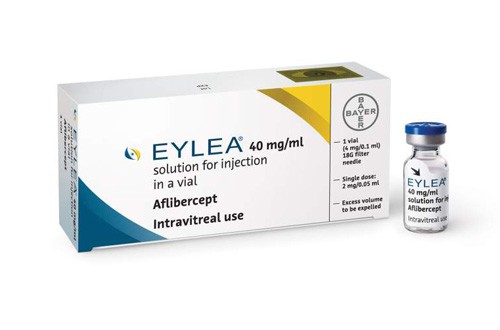
The National Institute of Health and Care Excellence (NICE) is poised to hand Bayer’s Eylea a limited recommendation for the treatment of branch retinal vein occlusion (BRVO).
The provisional guidance in NICE’s Appraisal Consultation Document only recommends Eylea in visual impairment in adults caused by macular oedema if laser photocoagulation has not been beneficial or is not suitable. Bayer would also have to provide Eylea at the discount it agreed with the Department of Health under its patient access scheme.
But the company says NICE’s position goes against 2015 guidelines from the Royal College of Ophthalmologists, which recommend first-line treatment of BRVO with anti-VEGF therapies – such as Eylea (afibercept).
Dr Alexander Moscho, CEO Bayer UK/Ireland said: “We are disappointed with the preliminary recommendation from NICE. We feel it is out of touch with current practice and moves away from the pathway recommended by the Royal College of Ophthalmologists in recognition of what is best clinically for patients.
“An ongoing consultative process will now begin with NICE and Bayer will be actively participating to ensure that patients facing sight-loss are able to receive treatment in line with Royal College recommendations and international standards of care.’
Lilly says that, although 2011 and 2013 NICE guidance backs laser photocoagulation as a first-line treatment of visual impairment due to BRVO, clinical practice has since changed.
Bayer’s cost-effectiveness modeling put the incremental cost-effectiveness ratio (ICER) of Eylea in patients with untreated visual impairment compared with Eylea after laser photocoagulation at £15,365 per quality-adjusted life year (QALY) gained (including the patient access scheme). But details of the scheme, costs and QALYs all remain confidential.
Although NICE’s appraisal committee concluded Eylea could be more clinically effective in patients with untreated visual impairment compared with after laser photocoagulation, it found the drug’s ICER would be above the range for a cost-effective use of NHS resources.
NICE has previously recommended Eylea to treatment wet age-related macular degeneration and diabetic macular oedema.
NICE’s next appraisal committee meeting on Eylea and its use in BRVO will take place in July, with final guidance expected in October.




